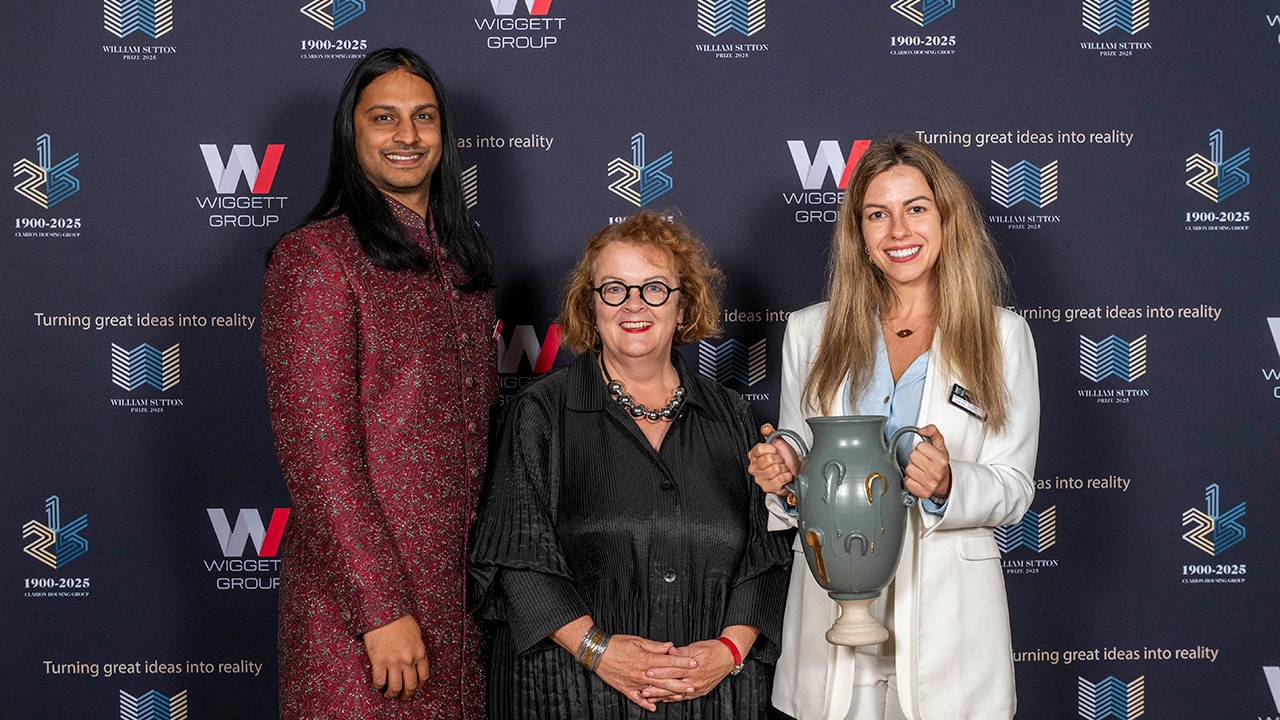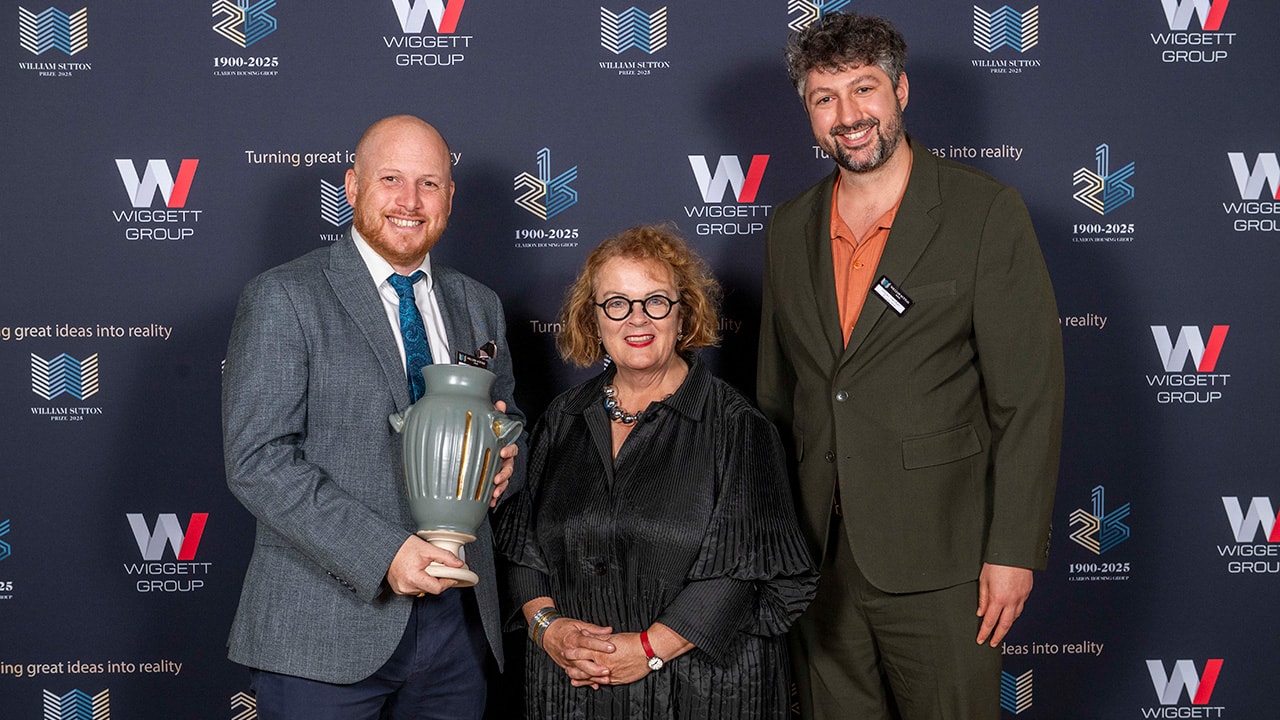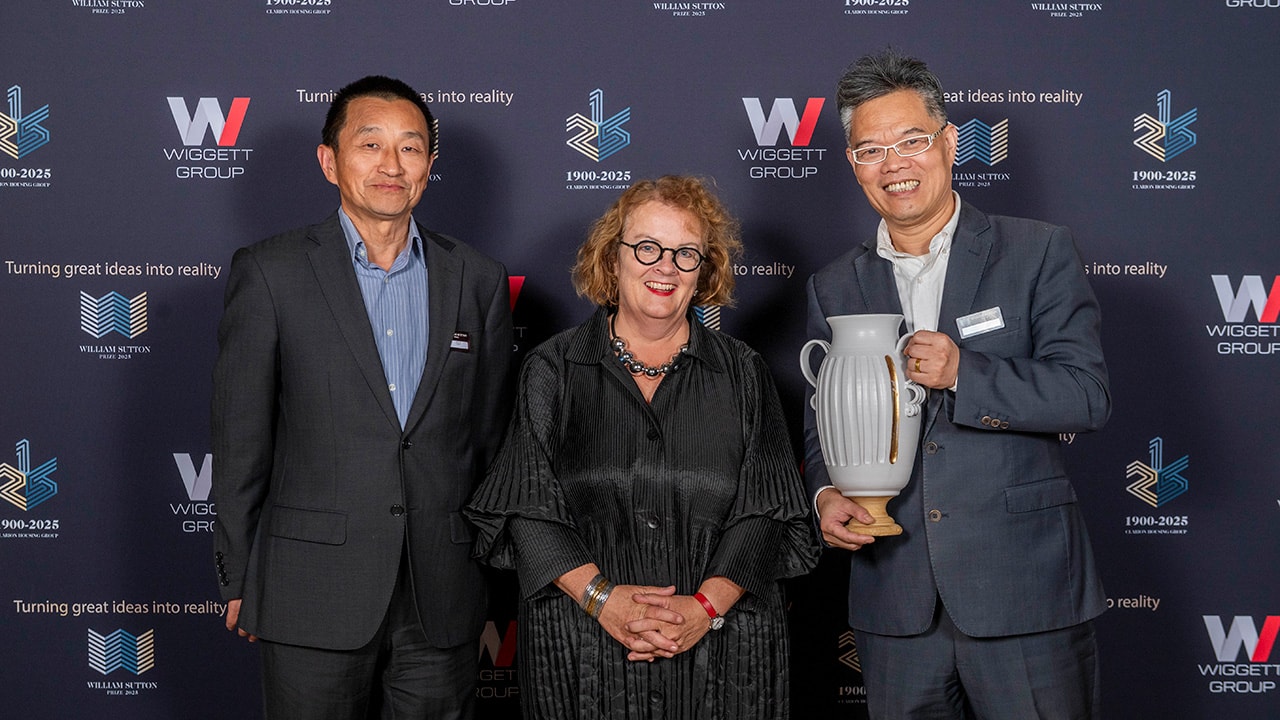

Unlock the power of Regenerative Places: Enriching nature, homes and the built environment
The William Sutton Prize for Sustainability is a catalyst for innovative projects that restore and protect our natural world.
The Prize seeks bold, creative ideas that improve energy efficiency and reduce waste in our new builds and existing homes.
Every idea matters, no matter how big or small. What's essential is that ideas have the potential to make a significant impact and inspire others across the sector.
Prize for Sustainability winners

The team from Eyesea Green Limited with their trophy and Clare Miller, Chief Executive of Clarion Housing Group.1Of2
AdaptiveHeat by Eyesea Green Limited

The team from Bioregional with their trophy and Clare Miller, Chief Executive of Clarion Housing Group1Of2
Retrofit Automation Tool by Bioregional

The team from AgriCycle Innovation Ltd with their trophy and Clare Miller, Chief Executive of Clarion Housing Group.1Of2
ReHarvest Board by Agricycle Innovation
Winners in their own words
The sixth edition of the William Sutton Prize
In 2025, we called for submissions that centred on one or more of the following areas:
- Regenerative and Climate-Resilient Design: Proposals that enhance community health and wellbeing while improving building longevity. Examples include innovative green construction methods that restore nature and exceed net-zero targets, as well as solutions to make homes resilient to extreme weather, such as nature-based approaches that protect ecosystems and vulnerable communities.
- Retrofitting and Renewable Energy: Proposals that enhance living conditions, lower resident bills, and boost financial and environmental sustainability. Examples include scalable retrofit solutions to upgrade existing homes and innovative financial models to make large-scale retrofitting affordable and cost-efficient.
- Resource Efficiency and Carbon Reduction: Proposals that cut utility bills, conserve resources, reduce waste and carbon emissions, and align with climate goals. Examples include water-efficient homes and infrastructure, as well as circular solutions like bio-based materials and recycling and reuse programmes to minimise construction and household waste.
- Biodiversity and Nature Recovery: Proposals to boost biodiversity, support pollinators, and create recreational green spaces to enhance resident wellbeing and connection to nature. Examples include diverse landscaping with native plants, wildlife corridors for ecological connectivity, and habitat restoration in construction and upgrade projects.
- Wellbeing and Placemaking: Proposals that drive climate friendly choices and community initiatives to improve wellbeing through ideas driven by sustainability. Examples include sustainable travel options like electric vehicles and cycling, and resident engagement tools for property management, energy efficiency, and ongoing feedback through digital platforms.
The judges
The esteemed judging panel was a diverse group of experts and industry leaders dedicated to identifying and supporting groundbreaking ideas that drive meaningful change.
- Chair: Jock Lennox, Chair of the Clarion Housing Group Board
- Bukky Bird, Group Sustainability Director of Barratt Developments
- Greg Fitzgerald, Chair and Chief Executive of Vistry Group
- Tara Gbolade, Co-Founding Director of Gbolade Design Studio
- Peter Murray, Co-Founder of New London Architecture
- Miles Lewis, Director of Sustainability at Clarion Housing Group
- Nick Wood, Regional Managing Director (South) at Clarion Housing Group


